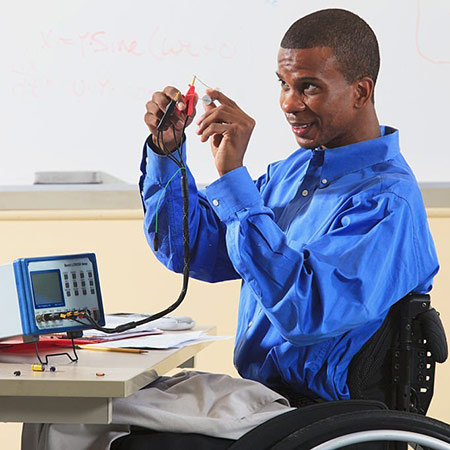Informal apprenticeship training is widespread in Nigeria and presumably the largest and most accessible training system in the country. However, it tends to be trapped in a vicious cycle of low skills and low productivity in the informal sector. Inspired by ample experience with strengthening informal apprenticeship training in other African countries, the IDEAS project aims to develop “structured apprenticeship training” in selected informal sector clusters across the participating states.









To achieve the above-mentioned objectives, a comprehensive support package will be provided to selected MCPs and their apprentices in a defined range of trades/occupational areas in the states. While component activities are coordinated by the PMU, an array of stakeholders will be involved at different steps of the implementation. Apart from the MCPs themselves and their apprentices, these include the SPIUs, chambers, trade associations, training centres, the NBTE as regulatory authority, awarding bodies and sector skills councils. Furthermore, different service providers (consultants) will be involved in the preparation, implementation and monitoring of component activities.
MCPs and their apprentices form the core of the component. To improve their skills, capacities and labour market standing is the aim of all activities. MCPs can be defined as traditionally recognized senior experts (masters) in their trade in the informal economy. MCPs are usually involved in informal apprenticeship training, i.e., a number of youth work under their supervision and authority with the aim to learn the trade. To be eligible to benefit under the IDEAS project, an MCP should have a minimum of 12 years of independent work experience, be a registered member of a trade association and should have the basic tools, equipment and manpower required for production and training of apprentices.
Component activities will focus on clusters of MCPs. A cluster in this context means a group of approximately 15 MCPs of the same trade and operating within a radius of 5 kilometres. Clusters will be formed specifically for the purpose of the IDEAS project. All MCPs forming one cluster should be registered with the same trade association. Clusters are defined and registered for the purpose of the IDEAS project, however, they are not necessarily legally registered under any Government of Nigeria law. For the purpose of communication within the project, i.e., vis-à-vis the PMU and other project stakeholders and implementers, clusters should designate a cluster coordinator.
Component activities will be implemented in three to five different trades per state, which are selected on the basis of their importance for the state’s labour market and employment growth. Some trades may be selected for support in different states. This implies that the final number of different trades to be targeted under the component is only known once all states have identified the trades to be specifically targeted in their state. It is expected that the total number of trades to be supported under the project across states will be between five and ten.
Which trades to be targeted under the component will be decided at state level, and the selection process will be facilitated and strongly supported by the PMU. For this purpose, the PMU will commission a state-level labour market assessment (which is the same study that informs the selection of priority trades/occupational areas for Component 1), which will identify for each state the relative importance and market prospect for different trades and the institutional and stakeholder environment for trade and sector-specific representation and development. Informed by this baseline study, the PMU will – liaising for this closely with the SPIU and other state stakeholders – for each state draw up a prioritized list of trade areas to be targeted, based on the following criteria:
- labour market growth potential of the trade;
- actual prevalence of trade activities;
- actual or potential female participation in apprenticeship in the trade; and
- strength of trade association in the state.
The prioritized list of trades will be submitted to the SPSCs, which will endorse the list in consultation with the World Bank
